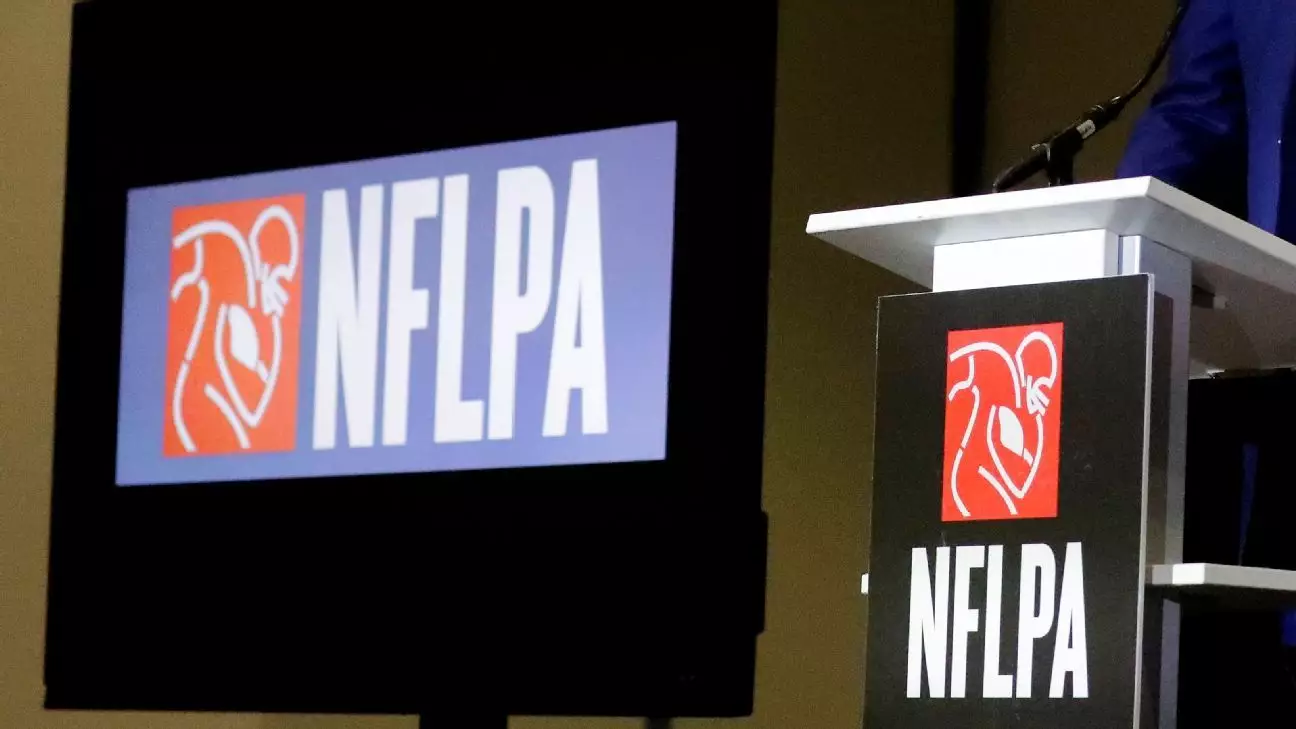The recent appointment of David White as interim executive director of the NFL Players Association signals more than just a temporary administrative change; it exposes a profound crisis within the union’s leadership structure. What was meant to be a strategic move to stabilize the organization has instead revealed a leadership embroiled in controversy, questions of integrity, and fundamental mistrust among its members. The NFLPA’s inability to present a cohesive vision for the future underscores the necessity of reevaluating what “representation” truly entails in such a powerful, influential union.
More disturbingly, White’s selection—despite his extensive resume—raises alarms about the union’s priorities. While his experience in labor rights and leadership roles suggest a capable candidate, the broader context of Howell’s scandal and the secretive internal political processes cast a shadow over the union’s decision-making. The NFLPA appears to be caught in a cycle of reactive appointments rather than proactive reforms, a move that risks further eroding the very foundation of trust the union desperately needs to rebuild. The design of this leadership draw feels more like damage control than an earnest pursuit of integrity.
Opaque Processes and a Diminishing Democratic Voice
The union’s selection process, shrouded in secrecy and controlled by internal politicking, underscores a troubling deficiency in transparency. An election held behind closed doors, with only a select group of insiders privy to the full scope of the process, hardly inspires confidence in the democratic aspect of union governance. The fact that only one of the two finalists was publicly known—while others were kept under wraps—exemplifies an entrenched culture of opacity, which alienates the very members it claims to serve.
This pattern of behind-the-scenes maneuvering signifies a broader problem: a disconnect between leadership and members. Players, the core stakeholders, are expected to trust decisions made in hushed conference rooms rather than through open, participatory processes. The fact that the union’s executive committee, which operates in relative secrecy, initially favored White over other candidates raises questions about fairness and the genuine pursuit of the best leadership. When transparency is sacrificed at critical junctures, trust is inevitably compromised, leaving players feeling disillusioned and unheard.
The Erosion of Morality and the Need for Genuine Accountability
The controversy surrounding Lloyd Howell Jr.’s resignation—linked to his sideline work with private equity interests and questionable expenditures—highlighted a disturbing slide into ethical lapses at the highest levels. It exposed how union leadership, entrusted with safeguarding players’ interests, can become entangled in conflicts of interest that threaten the very fabric of fairness and trust. The momentum from Howell’s scandal has yet to fully subside, and the selection of a new interim director seems to be caught in the fallout.
The critics within the league and its players rightly demand accountability, not just superficial repairs to image. Leadership must exemplify integrity and prioritize member welfare above personal or corporate gain. White’s appointment, despite his impressive resume, cannot serve as a cure-all; it risks being yet another example of hiring based on political loyalty or internal favors rather than merit and moral standing. For the NFLPA to regain credibility, it must demonstrate a genuine commitment to ethical standards, transparency, and holding leaders accountable for their actions.
The Challenge of Rebuilding Trust and Instituting Real Reform
In the midst of turbulent waters, the NFLPA faces the urgent task of transforming itself from a top-down apparatus into a truly player-centered organization. This means fostering a culture where transparency isn’t optional but fundamental, where every decision is open to scrutiny, and where member voices are genuinely influential. If the union fails to do so, it risks becoming an institution marred by cynicism and internal division, rather than a powerful advocate for athlete rights.
The process of choosing a permanent CEO must be more than a perfunctory appointment; it needs to be a foundation for meaningful reform. Leadership cannot be about maintaining status quo or appeasing entrenched interests—it must be about restoring faith, demonstrating clear ethical standards, and actively engaging players in decision-making. Only through such transformational change can the NFLPA hope to emerge from its current crisis and fulfill its promise as a true champion of players’ rights and well-being.
The union’s future, and perhaps its very legitimacy, hangs in the balance. Unless it confronts its deficiencies with honesty and a resolute commitment to transparency and integrity, it risks becoming just another political institution marred by scandal and disillusionment. The players—its rightful founders—deserve leaders whose actions speak louder than their titles and whose commitment to justice and fairness cannot be broken by scandal or secrecy.


Leave a Reply